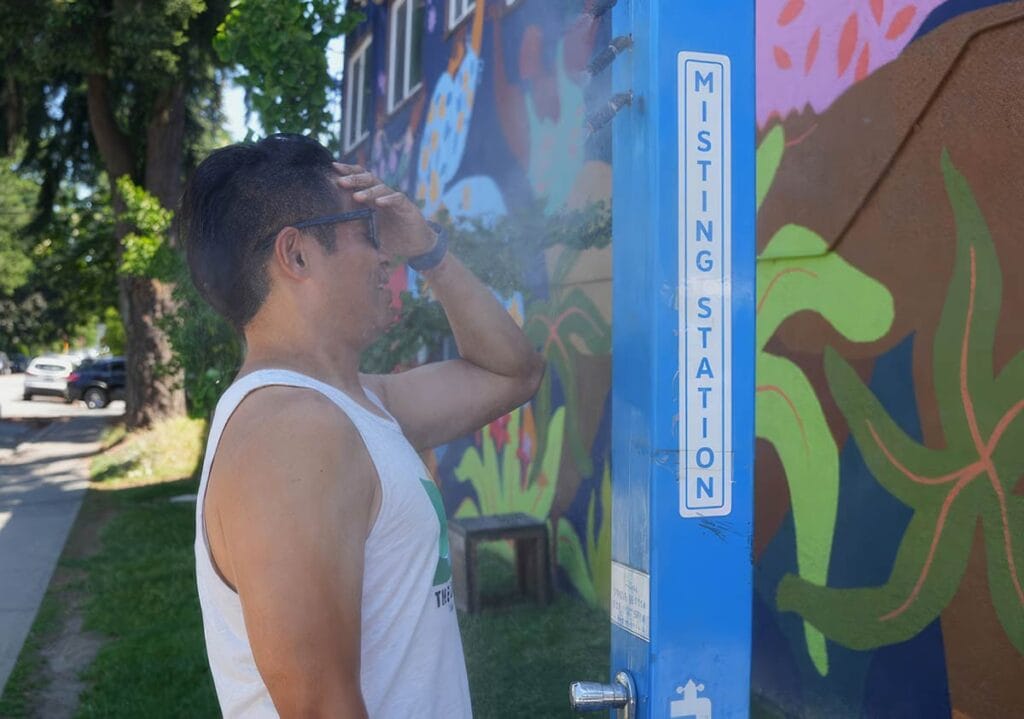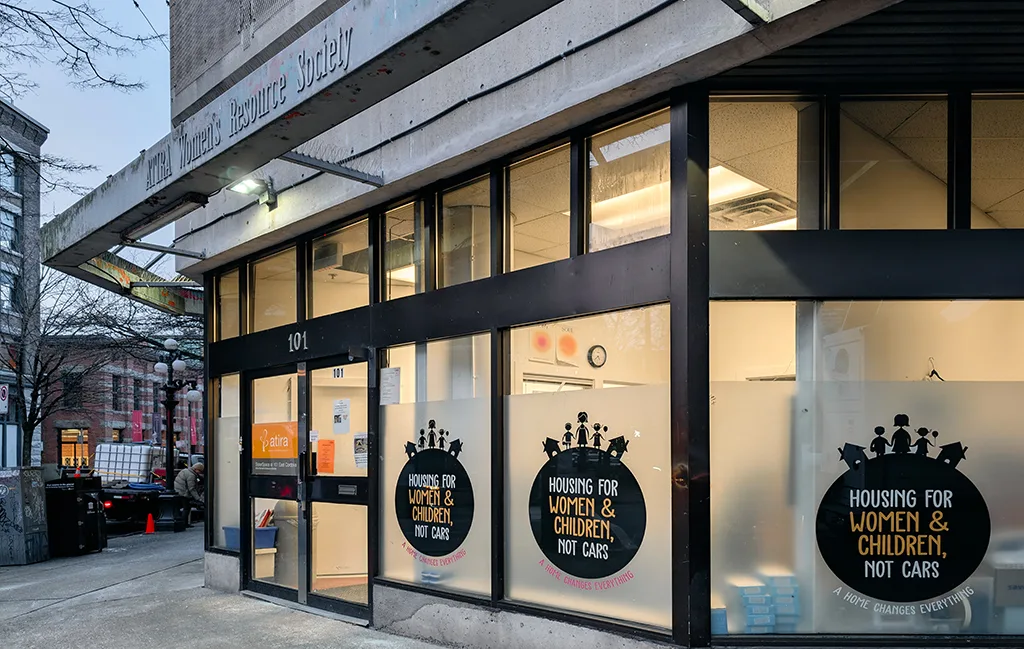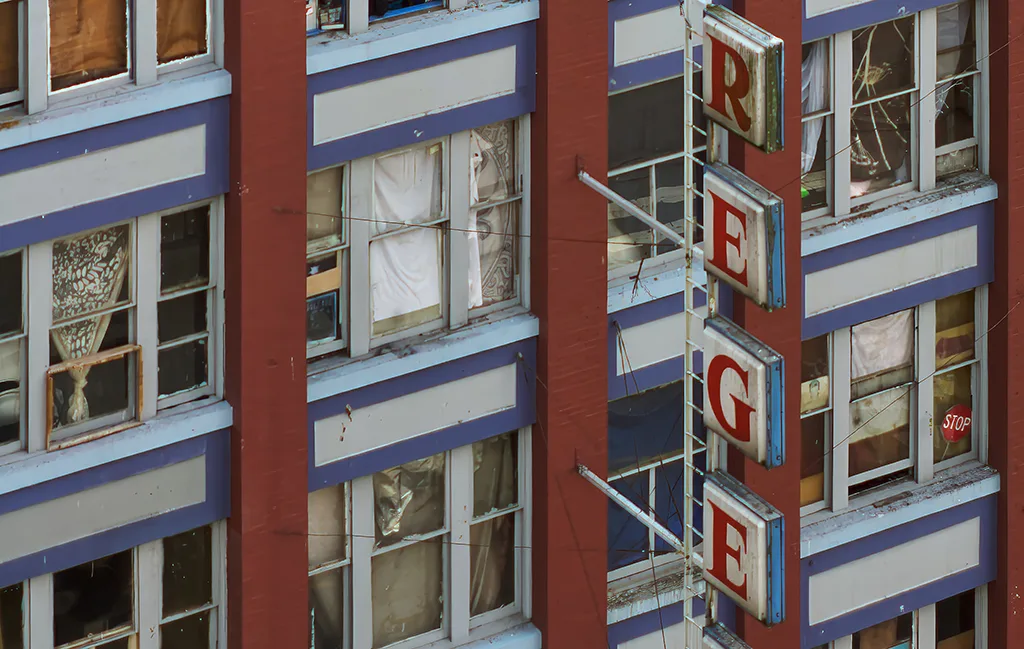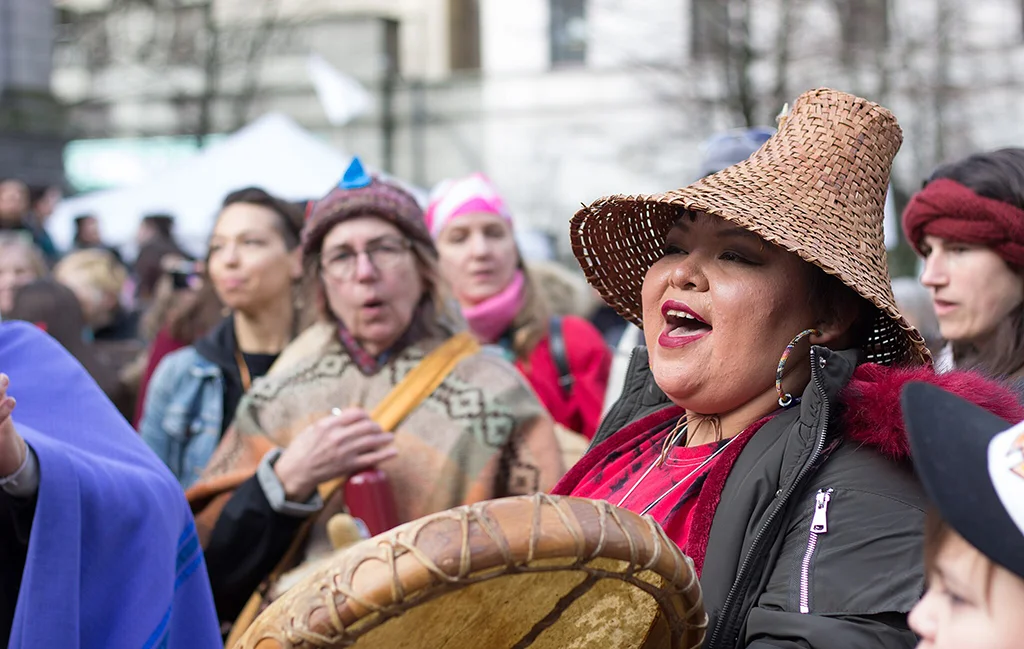With rising global temperatures, the urgency of providing air conditioning for low-income and vulnerable residents has become a pressing issue, particularly in Vancouver’s Downtown Eastside. Here, thousands of tenants live in Single Room Occupancy (SRO) buildings that lack essential cooling and heating amenities, creating dangerous living conditions during extreme weather events. The BC Coroners Service reports that during the 2021 heat dome, low-income residents in BC were 2.4 times more likely to perish compared to wealthier individuals, highlighting the deadly consequences of inadequate housing infrastructure. Despite provincial programs aimed at providing air conditioners to heat-vulnerable residents, barriers persist for many, leaving vulnerable populations to bear the brunt of extreme temperatures.
Extreme Heat and the Reality of SRO Living
SRO buildings, often decades old and minimally maintained, serve as a last refuge for some of Vancouver’s most marginalized residents. These small, single-room units offer limited amenities and are frequently lacking in basic climate control options. During summer, residents are left to endure extreme temperatures, with many rooms turning into heat traps due to poor insulation and ventilation. As Karen Ward, a DTES advocate, explained, the structural inadequacies of SROs make them particularly hazardous during heat waves, with residents forced to rely on fans or to seek relief outside their homes.
For tenants in these conditions, managing heat can become a matter of life and death. In the 2021 heat dome, 619 lives were lost in British Columbia, with low-income individuals comprising the majority of fatalities. SRO residents, especially the elderly or those with pre-existing health conditions, face amplified risks as a result of structural deficiencies in these buildings. Unlike modern apartments, which are often equipped with air conditioning or advanced ventilation systems, SROs have barely been upgraded since their construction, and few offer tenants access to cooling devices.
A Provincial Response with Limitations
In response to these alarming figures, the BC government announced a three-year initiative in 2023 to distribute portable air conditioners to low-income and “heat-vulnerable” residents. The program, managed by BC Hydro, aims to provide over 28,000 AC units across the province. Residents qualify based on income thresholds—$38,200 for single occupants and $101,000 for households of seven or more. Additionally, BC Housing has acquired an emergency inventory of cooling and clean-air items, including 1,530 portable AC units, 2,500 fans, and 2,500 cooling kits to be distributed across vulnerable communities. To further support renters in accessing the program, the Residential Tenancy Branch (RTB) recently clarified guidelines around AC installation, stating that landlords cannot unreasonably prohibit air conditioning in rental agreements unless there’s a legitimate safety concern. The province has also implemented a system to fund local governments and First Nations, reimbursing eligible costs for operating community cooling centres—public spaces where residents can stay cool during extreme heat events. Since 2022, this funding has enabled 100 local governments and First Nations to support cooling centres and, if necessary, provide transport to and from these locations. In addition, more than $217 million has been invested through the Community Emergency Preparedness Fund (CEPF) since 2017 to bolster resilience to climate-related risks, including $2.7 million specifically allocated to extreme heat projects. Despite these efforts, the program has been criticized for lacking scope and speed, especially when considering the approximately 400,000 low-income individuals in BC, many of whom live in housing without adequate climate control.
Further complicating access, renters—including those in SROs—must navigate a bureaucratic maze to receive a free AC unit. This process involves obtaining written consent from landlords and proof of income and supplying a BC Hydro account number, which can be difficult for some residents to access. These requirements often deter eligible residents from applying, as navigating online application systems and paperwork proves challenging for many in the DTES, where access to technology and resources is limited.
Landlord Restrictions and Electrical Constraints
One of the primary obstacles to widespread AC adoption in SROs is resistance from landlords, many of whom cite inadequate electrical infrastructure as a reason for denying tenants’ requests. SRO buildings, designed in the early 20th century, often lack the necessary electrical capacity to support multiple air conditioning units. While a typical portable air conditioner draws about 1,000 to 1,500 watts—similar to a space heater—the outdated wiring systems in many SROs struggle with this additional load, creating potential hazards and additional maintenance costs for building owners.
Wendy Pedersen, executive director of the SRO Collaborative, described these challenges, noting that many SRO owners are hesitant to approve AC units due to the potential for circuit overloads. In some cases, landlords simply ban AC units altogether, stating that the buildings’ aging electrical grids cannot handle the demand. However, advocates argue that landlords’ unwillingness to invest in infrastructure improvements unfairly places the burden on tenants, leaving them without recourse during extreme heat events.
Some landlords have taken steps to address these concerns by creating shared “cooling spaces” within their buildings. In one instance, an SRO hotel owner worked with the SRO Collaborative to convert a room into a community kitchen with air conditioning and electrical upgrades. This shared space provided a reprieve from the summer heat, allowing residents to cool off while also meeting their cooking needs. Although not a widespread solution, these collaborative efforts illustrate the potential for landlord-tenant partnerships in addressing basic needs in a challenging environment.
The Residential Tenancy Branch and Policy Shortfalls
The Residential Tenancy Branch, responsible for regulating rental housing in BC, recently updated its guidelines to clarify that landlords cannot unreasonably restrict tenants from installing air conditioning. However, the RTB stops short of mandating AC access, leaving it up to landlords to determine if a unit can safely accommodate one. This grey area has led to uneven implementation, with some tenants able to install AC units while others are denied based on building limitations or landlord preferences.
The RTB suggests that when individual AC units are not feasible, landlords should provide alternative cooling solutions. However, these solutions remain largely undefined and unenforced, meaning landlords have significant leeway in deciding what, if any, cooling amenities they provide. For DTES tenants, this leaves a stark reality: their safety in extreme heat events is often at the mercy of landlords’ discretion. Without mandatory regulations or clear standards, many SRO residents remain vulnerable to the health risks associated with inadequate cooling.
Systemic Barriers and Health Inequality
The systemic nature of these challenges cannot be overlooked. Low-income individuals and marginalized groups, including many racialized residents in BC, are disproportionately affected by extreme heat due to a lack of access to air conditioning and other cooling measures. A Statistics Canada report from 2023 found that only 32 percent of BC residents had access to AC at home—one of the lowest rates in Canada. For groups living in SROs, this figure drops significantly, with less than 24 percent of renters and just 18 percent of racialized British Columbians reporting AC access. This disparity underscores the connection between socio-economic status and health outcomes, with those at the lowest income levels bearing the greatest climate-related risks.
Critics of the provincial AC program argue that it fails to account for the realities faced by DTES residents. The program’s eligibility requirements—such as needing a landlord’s BC Hydro account number or online application access—exclude those without computer access or the ability to navigate complex bureaucratic processes. Karen Ward, a DTES advocate, has voiced concerns that these barriers prevent the program from reaching the people who need it most, leaving thousands without viable cooling options as temperatures rise.
Building Lasting Solutions for Heat Relief in Vulnerable Communities
Addressing the pressing needs of SRO tenants requires more than isolated programs or short-term fixes. Advocates argue for a multi-pronged approach that includes funding for electrical upgrades in aging SRO buildings, mandatory cooling standards in rental housing, and expanded support for community cooling centres during extreme heat events. By investing in infrastructure improvements and holding landlords accountable for tenant safety, BC can create a more resilient and equitable housing environment that prioritizes health over cost.
To mitigate the impact of extreme heat on vulnerable populations, BC must also simplify access to AC units by removing bureaucratic hurdles. Streamlining the application process, expanding eligibility, and offering additional funding for landlords to improve building infrastructure would provide much-needed relief to tenants in the DTES. For residents who are unable to secure AC units, guaranteed access to local cooling centres could serve as an immediate solution, particularly during future heat waves.
In the long term, these steps are essential not only for tenant safety but for equity in public health policy. By ensuring that all residents, regardless of income or housing type, have access to safe living conditions, BC can set a precedent for compassionate and forward-thinking responses to climate-related challenges.
A Safer, Cooler Future for Vancouver’s SRO Tenants
Vancouver’s SRO tenants face an increasingly harsh climate, both figuratively and literally. As summers grow hotter and extreme weather events become more common, the need for reliable, accessible cooling solutions in low-income housing is urgent. While the provincial government’s initiative to distribute free air conditioning units marks progress, significant barriers remain, particularly for DTES residents who struggle with bureaucratic requirements, landlord resistance, and systemic inequalities.
The path forward calls for a comprehensive overhaul of existing policies, with an emphasis on making cooling solutions accessible and affordable for all. A future where no tenant suffers due to preventable heat exposure requires collaboration between the government, landlords, and community advocates to ensure that SRO residents receive the safety and dignity they deserve. The lives and well-being of Vancouver’s most vulnerable residents depend on these changes—and the time to act is now.
Lance has lived in the Downtown Eastside for years, staying closely connected to the neighbourhood and the people who call it home. He writes about the issues that matter—from housing and policy shifts to the everyday stories that shape the community—because DTES isn’t just where he lives, it’s a place he cares deeply about.







Leave a Comment